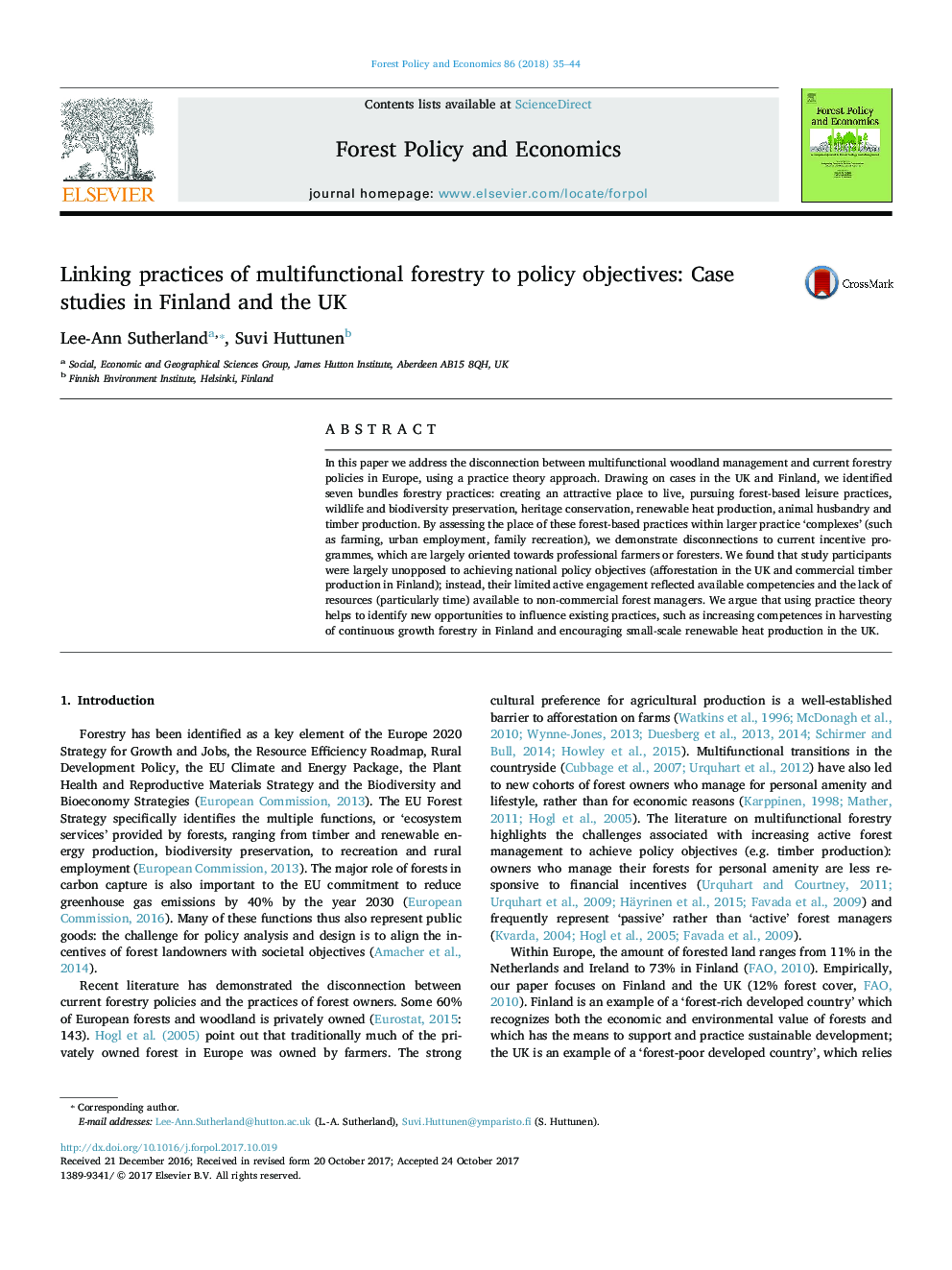| Article ID | Journal | Published Year | Pages | File Type |
|---|---|---|---|---|
| 6544831 | Forest Policy and Economics | 2018 | 10 Pages |
Abstract
In this paper we address the disconnection between multifunctional woodland management and current forestry policies in Europe, using a practice theory approach. Drawing on cases in the UK and Finland, we identified seven bundles forestry practices: creating an attractive place to live, pursuing forest-based leisure practices, wildlife and biodiversity preservation, heritage conservation, renewable heat production, animal husbandry and timber production. By assessing the place of these forest-based practices within larger practice 'complexes' (such as farming, urban employment, family recreation), we demonstrate disconnections to current incentive programmes, which are largely oriented towards professional farmers or foresters. We found that study participants were largely unopposed to achieving national policy objectives (afforestation in the UK and commercial timber production in Finland); instead, their limited active engagement reflected available competencies and the lack of resources (particularly time) available to non-commercial forest managers. We argue that using practice theory helps to identify new opportunities to influence existing practices, such as increasing competences in harvesting of continuous growth forestry in Finland and encouraging small-scale renewable heat production in the UK.
Related Topics
Life Sciences
Agricultural and Biological Sciences
Forestry
Authors
Lee-Ann Sutherland, Suvi Huttunen,
